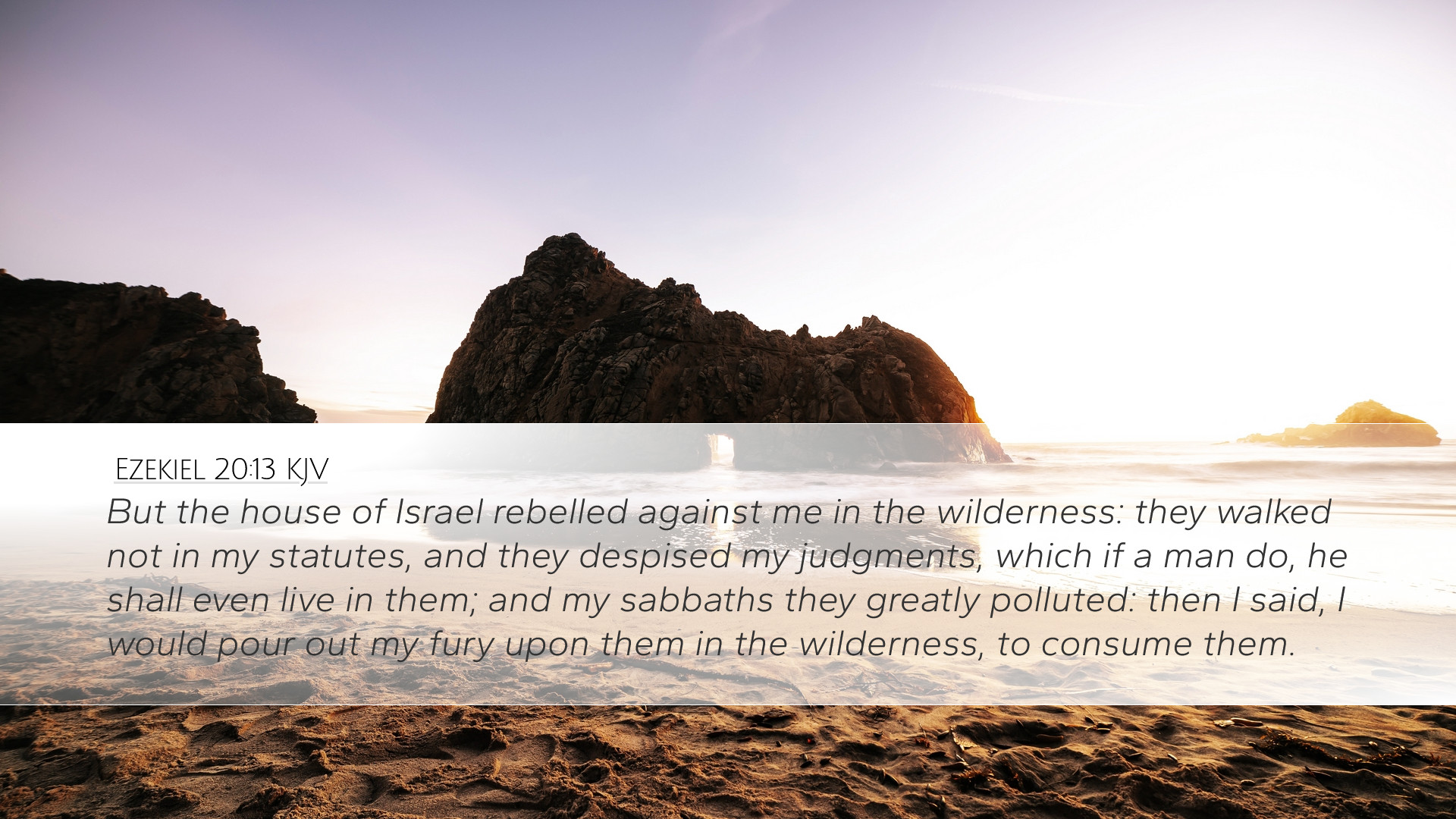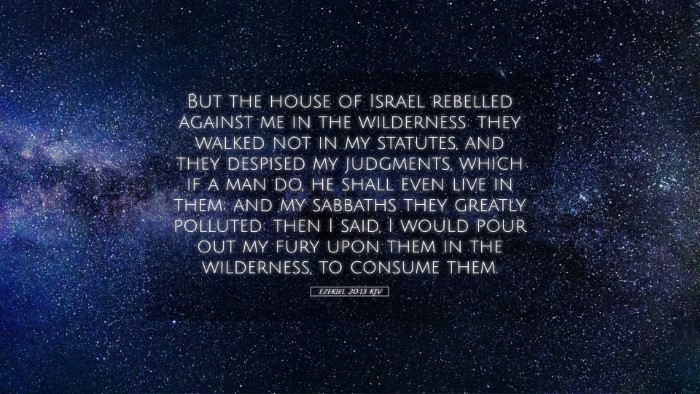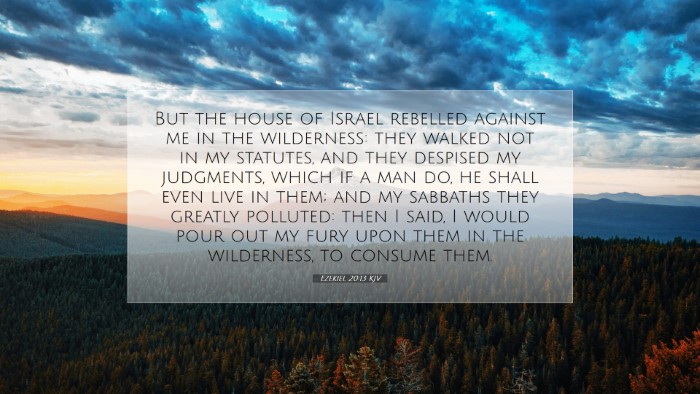Commentary on Ezekiel 20:13
Verse Context: Ezekiel 20:13 states:
"But the house of Israel rebelled against me in the wilderness; they did not walk in my statutes, but rejected my rules, by which, if a person does them, he shall live. And my Sabbaths they greatly profaned." (Ezekiel 20:13, ESV)
Introduction
This verse presents a critical moment in Israel's history, reflecting upon their rebellion during the period of the Exodus. The Lord, through Ezekiel, recounts the disobedience of His people, emphasizing their failure to adhere to His statutes and their disregard for the Sabbath. This serves as a stark reminder of the consequences of rebellion against God and the importance of obedience to His commands. The insights from esteemed commentators provide a deeper understanding and relevance of this text for contemporary readers.
Historical Context
In this chapter, Ezekiel is addressing the elders of Israel, explaining their continued disobedience despite God's mercy and guidance. The historical backdrop includes the Israelites' journey through the wilderness, marked by numerous acts of rebellion against God, which serves as a lesson for future generations.
Matthew Henry's Insights
Matthew Henry emphasizes the nature of the rebellion, noting that the people rejected God's statutes which were designed to lead them to life. He states:
- The Rebellion: Henry points out that this was not merely a failure of obedience but a conscious rejection of God's laws, highlighting the serious nature of their unfaithfulness.
- Profanation of the Sabbath: He elaborates on how the Sabbath was a sign of God's covenant and rest, and to profane it was to undermine the very relationship they had with the Almighty.
Albert Barnes' Commentary
Albert Barnes offers a detailed analysis of this verse, focusing on the implications of Israel's actions.
- Failure to Walk in Statutes: Barnes points out that walking in God's statutes is essential for the spiritual health of His people. The refusal to do so leads to dire consequences, illustrating that obedience is not optional.
- Significance of ‘Living’: He interprets the phrase “if a person does them, he shall live” as indicative of both physical and spiritual life, emphasizing that life in its fullest sense comes through obedience.
Adam Clarke's Perspective
Adam Clarke provides a theological perspective, examining the moral failing of Israel.
- Spiritual Consequences of Rebellion: Clarke discusses how Israel’s rebellion caused a separation from divine favor, leading to spiritual death. He stresses that the heart’s condition is reflected in one’s obedience to God's commands.
- The Nature of God’s Rules: According to Clarke, God's rules were given as a means of guidance, reflecting His love and desire for His people to thrive.
Theological Implications
This verse and its commentary have profound implications for theological reflection:
- Disobedience and Judgment: The consequences of disobedience are clear, as God’s judgment is a direct response to the rebellion of His people. This highlights the holiness of God and the seriousness of sin.
- The Call to Obedience: The text serves as a call to modern believers to live in accordance with God’s statutes, reminding them that true life is found in following His ways.
- Understanding the Sabbath: The mention of the Sabbath brings forward discussions on its importance in the life of a believer, advocating for a holistic understanding of rest and worship in God’s presence.
Contemporary Application
The message of Ezekiel 20:13 resonates with believers today:
- Self-Examination: Pastors and leaders are urged to examine their congregations critically. Are they encouraging spiritual growth through adherence to God’s Word?
- Emphasis on Rest: The contemporary church must recognize the importance of the Sabbath and incorporate practices that promote rest and spiritual rejuvenation.
- Teaching Obedience: There is a need for solid teaching on the nature of God’s commands—viewing them not as burdensome rules, but as pathways to life.
Conclusion
Ezekiel 20:13 is a powerful reminder of the delicate relationship between faithfulness, obedience, and the life that God promises His people. The insights provided by historical commentators illustrate the deep spiritual truths embedded in this text, serving as timeless lessons for today's believers. Let us heed the warnings of rebellion and strive toward obedience, recognizing that in doing so, we align ourselves with the desires of our gracious God.


